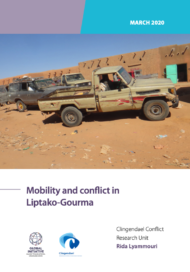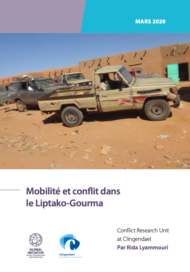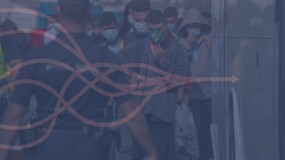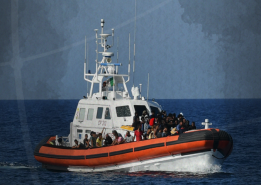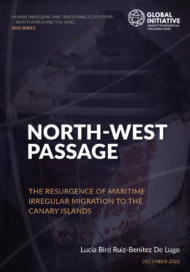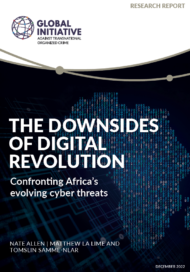Posted on 15 May 2020
Over the past four years the triangle border region of Mali, Niger and Burkina Faso – known as Liptako-Gourma – has experienced heightened intercommunity violence and attacks by violent extremist organizations (VEOs).
Regions affected the most include Mopti and Gao in Mali, the Tillabéri and Tahoua regions in Niger, and the Sahel and Est regions of Burkina Faso. The escalation of armed violence has forced an unprecedented number of civilians to abandon their homes, and this trend continues as of March 2020. These developments not only have an impact on the population living in the area, but also put at risk people on the move, including refu-gees and internally displaced persons (IDPs), as well as seasonal, short-term circular, and longer-term migrants travelling to North Africa and Europe. This study assesses these dynamics in more detail based on a review of existing quantitative data combined with key informant interviews with migrants, transporters, influential local leaders, humanitarian actors, civil society organizations (CSOs), non-government organizations (NGOs) and international community actors present, operating and involved in conflict and/or migration related issues in Liptako-Gourma. The central research question of this study is how conflict in Liptako-Gourma has affected mobility patterns, such as migration, displacement and transhumance, and with what consequences for migrants and oth-er vulnerable populations. The sub-questions are:
- What has been the effect of deepening conflict on transborder mobility and migration routes? What is the link between mobility and VEOs? Are migrants being recruited by VEOs, and to what extent is human smuggling used to finance VEOs and other armed groups?
- What types of abuse do migrants and other vulnerable populations suffer at the hands of conflict actors, what type of protection is needed, and how could humanitarian and development actors (including inter-national institutions and NGOs) providing protection to vulnerable populations best respond to these pro-tection needs in regions where they have no – or limited – access due to the unravelling security situation?
